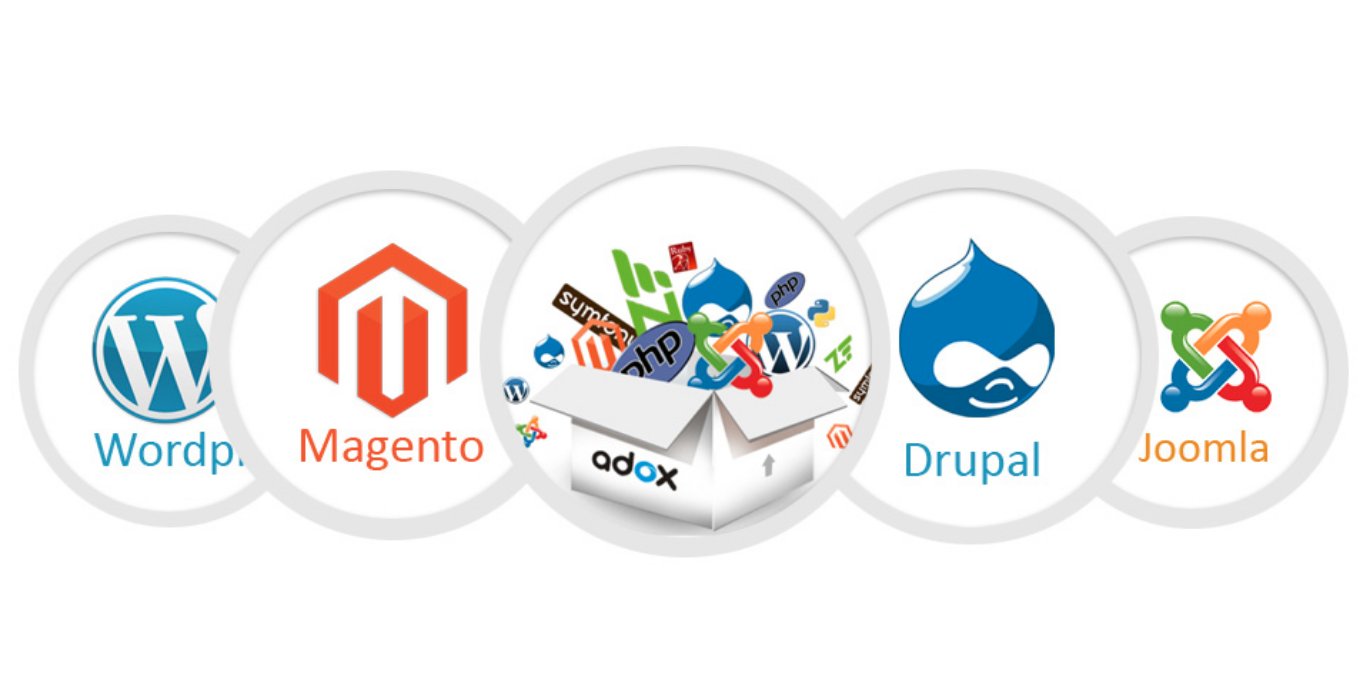How to Start a Blog and Get Paid

You, perhaps, could have skipped a moment when a blogger has turned from a weirdo into a well-paid job. Nevertheless, the state of things is that you don’t have to go to the office to earn money. Running a blog can pay your bills and even provide you with some money for the travels. Sounds fine, right?
But, as you may see, there are not too many people who can simply maintain their blog, thus earning a living. We may assume there are millions who try, but dozens actually succeed in it. To create a blog is easy, to make it popular enough to be paid – that’s where the trick is. Luckily we know all the basic steps of this journey.
The first thing to keep in mind is that blogging shouldn’t be taken easily. It is a job that requires all the intellectual efforts you can make and even more. There are several concepts that should be understood well enough to combine them, improvise, and adapt them to your needs and requirements. Because there could not be a step by step guide like “First, do this, secondly do that.”
Anyway, we are here to provide you with some knowledge and all the information you should consider if you want to have a chance for your blog to earn you a living.
Yet, knowledge without action means nothing, so be prepared to work hard. Even the longest journey starts with a single step. So here we go! The essential guide on how to start a blog from scratch and eventually get paid for it.
Step 1: Choosing a niche
First, you have to understand that any blogger you read or admire is merely a human. In a blog, your favorite blogger publishes things he or she has got expertise in or experienced personally. Or, has never met physically, yet has some interesting thoughts about it. Lots of bloggers offer guides or advice based on their skills or show places they’ve been before or even offer some good food for the brain.

It means that before starting your blog, you have to make it clear what you do better than others.
- What’s your expertise?
- Have you ever been to places no one has seen before?
- Or you can tell about well-known sites from a new, unexpected angle?
- Maybe you know how to do something that no one can?
Ask yourself what valuable information you can give to people. Can you make them laugh like crazy? Can you make them scared as hell? Can you tell a story everyone will enjoy and ask for more? What can you offer?
Step 2: Getting started
Another thing to keep in mind is the goal. What do you want to achieve with your blogging? Obviously, you need to gather a vast community of followers and subscribers. But you can’t attract everyone. You have to find your niche. And no matter what it is, your goal is to become an expert in it. When starting, you can be an amateur, but if there is no development, people will eventually become bored.

Here is an example. You can start a blog about wine and make hundred of reviews for everyone who adores red and white wine. Yet, your content eventually will become flat and monotonous. It means you either have to develop it further or admit you’ll never expand your audience.
How can you develop the content-plan for wines and winery? Of course, by adding more quality content. How do you get the inspiration for your new content? Visit some great wineries, or try to grow a grape at home and make some wine of it. See? This is how you may develop your expertise.
Step 3: Content planning
A content plan is something you’d better create rather than not. Of course, you will find out that after the first month, your plan will become obsolete, but at least you are to have a list of themes you will be talking about. It will ease your self-promotion and let you plan the overall strategy of your blog.
You can’t just mindlessly publish an article about LEGO today and continue talking about some beer tomorrow. Make a list of topics and arrange them relevantly, and try to stick to it. But if your subscribers ask you to speak of something, don’t make them wait too long.

Another thing to know is that you need a strict schedule. What differs successful bloggers from all the others is that they publish content on a regular basis. Regular updates are good for expanding the number of subscribers, and for Google indexation as well. Teach your subscribers to visit your blog regularly, and you’ll eventually build up your constant basic audience – a core you’ll build your blog on.
Step 4: Spreading everywhere
Now, you have already chosen your niche, prepared your content plan and even published several first posts and articles. Haven’t you forgotten to add images and videos to them? Anyway, it is the right time to spread a word about your blog as wide as possible. There are plenty of great platforms on the Internet to work with. For example, you can think of running your blog on social media:
These are some platforms you should think of. Depending on your content, you, perhaps, won’t need to work on LinkedIn or Pinterest. Facebook is a great choice, while Instagram can be used to promote you with the help of images. Twitter is a great social media to make announcements and promote your blog with the quality backlinks to the articles. Anyway, it depends on your content, so choose the platforms wisely.

Step 5: Picking a platform
Personal website based, for example, on the WordPress platform is a thing you should consider thoroughly. It has both its pros and cons, and there is no single solution for it. Depending on your niche, your personal website may be either a must or a waste of time.
The advantages you’ll get with a website running are:
- Personal domain name – it will make people trust you more and recognize you better;
- Technical support – it will help you cope with all the technical issues you may encounter;
- Hosting service – it will ensure that all the information you publish are safe and won’t get lost;
- Editing tools – for example, WordPress has lots of them, so your content will look appealing;
- Payment systems – that is always good if you are looking forward to monetization.
Nevertheless, it is up to you whether to start a personal website or work on social media. To make the right choice, you have to define your niche. Some topics are just better for social media only, while others will work better when published on one's website.

For example, if you are good at financial analysis, you’d better run a website because people will more likely trust the financier with a personal website. On the other hand, if you are into video gaming and cybersports, YouTube and Facebook are your obvious choices.
Step 6: Involving people
Now, when you’ve defined the place you are about to publish your content and chosen a niche, it is time to work on your audience engagement. It is not enough to simply publish something if your main goal is to make a living from your blog. You have to attract as many people as possible without lowering quality.
To achieve this, you can create several intersecting blogs. It will help you to expand your audience. For example, you can run three blogs at a time:
- The first one – providing people with valuable information about your area of interests;
- The second one – a self-promotional blog about where you have been, what you’ve seen and what you are into;
- The third one – a blog describing your industry and selling your product to people.

The idea is that the first blog will gather all the audience sharing your interests and looking for your expertise. The second one will turn your audience into loyal subscribers while attracting people who want to read about some interesting things you have seen and learn your ideas. The third here is to sell your product, if you have one, and to help you start earning with those blogs as soon as possible.
While the general concept here is fine, you have to think whether you have enough endurance and ideas to run all three blogs simultaneously. Yet, you can always hire freelancers to help you create the content.
Step 7: Making money
There are lots of ways to make money when your blog becomes well-known and popular. First, you can provide companies with an advertisement platform or even make reviews of products that are relevant to your niche. It is always a great source of income, and that’s how the majority of popular bloggers earn their dollars.
Besides that, if you become a renowned expert, you can always launch your personal website and create your own brand, whether it is digital or something you can manufacture. That’s also one good way to make money because lots of companies are constantly seeking expertise.

What is more, blogging will open lots of new opportunities for you. After you develop the expertise and learn how to write, you can always gather your articles and compose a book of them. This is something other bloggers do more or less frequently. You’ll have a name as an expert, so publishing houses will gladly work with you.
And if you run a website, you can sell “golden membership” that will provide people with exclusive content they can’t see without it.
Finally, you can even build a blogging platform around your name to resell other people’s content. As you can see, there are numerous opportunities here, and we bet you can invent some more.
Step 8: Technical inquiry
Well, sorry for distracting you from counting the money you think you can earn by following the aforementioned steps, but this is not the end. Don’t you think that everyone would become a blogger if making money out of it is so easy? There are some things they don’t usually mention in such guides.
And that’s why you should pay attention to this step. You see, all these steps are absolutely legit. Yet, they mean you have to possess extra skills, the lack of which will lead you to nowhere. Here we go – to make sure you’ll succeed, you have to:
- Learn how to write briefly. It doesn’t matter what they say, but you have to define the length of your texts and to begin with, you’d better make sure people can read your article in three minutes maximum. Otherwise, your audience will bookmark your content to read it later and then just forget about it.
- Get familiar with SEO. Even if you publish a cure for cancer in your posts, you’d better make sure search engines can find your texts. There are plenty of free tools to define keywords relevant to your niche, and your job is to incorporate them into your content. And make sure you do this the smart way because the text fully composed of keywords is a very bad idea.
- Study content editing tools. At least you should learn how to work with Photoshop for pictures and Adobe Premiere for videos. People prefer to watch, not to read, so if you want to make sure your blog will flourish, you should consider creating not the text-only content, but something else. For example, memes, collages, and short videos.
- Communicate with people. That one, perhaps, one of the most difficult. At some point, your audience will force you to produce the content they want, and nobody will care if you have an inspiration for it. Your job in this and many other situations is to be polite, yet avoid turning into the audience’s slave. Pacify conflicts, moderate discussions, and negotiate conditions – is something a blogger has to do, yet nobody warns about it.
There is also one more thing you should learn. It is a skill of never give up, no matter how tempting it can be. Success is not final, failure is not fatal: it is the courage to continue that counts.
Conclusion
We hope this article will help you start your blogging career. Do not think of it as of step by step guide, it is rather a list of things you definitely should fulfill while building up your blog. It is basic knowledge that will ease your work but think of it as a toolbox.
It is up to you whether to put it on a shelf or use it to build up your business. Just remember – while it seems to be extremely difficult, at some point every famous and successful blogger was the one, writing the first post. And if they have managed to succeed, so you will as well!






